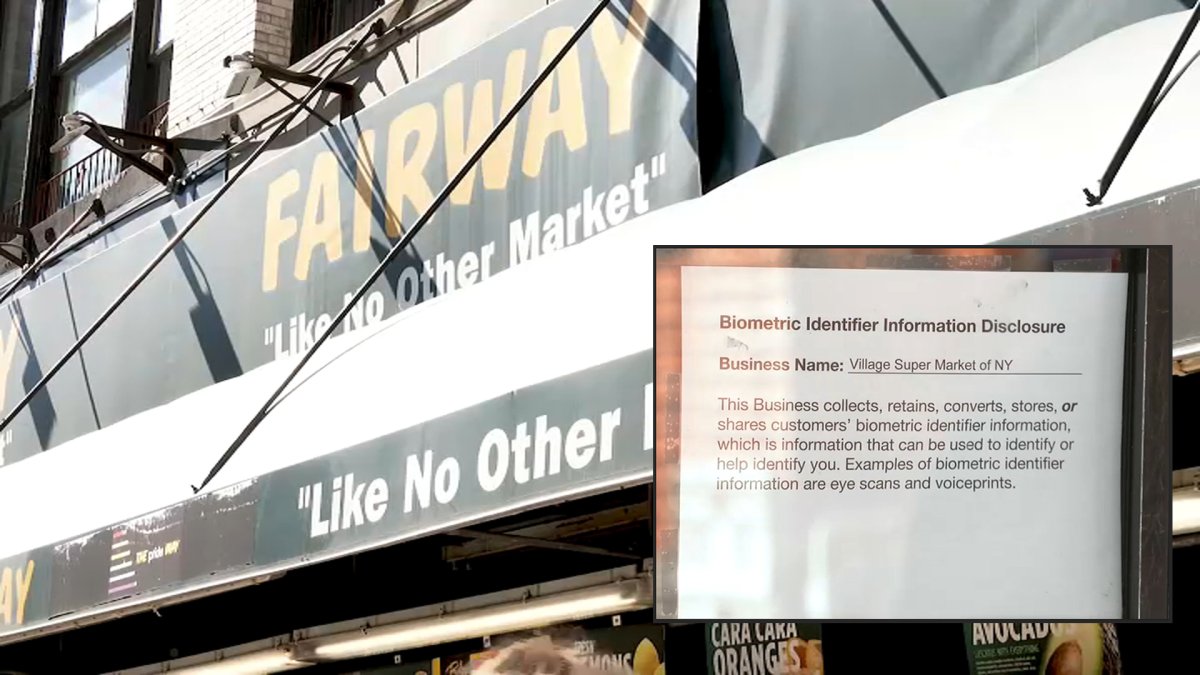NEW YORK — Stores and businesses are using facial recognition, fingerprint scanners or other technology to identify customers in what they say is their fight against crime. But do the tools infringe on civil liberties?
As shoppers shop at the supermarket Fairway In Broadway there West 74th Street, signs indicate that navel oranges and cranberries are for sale. There is also a sign warning shoppers themselves that the supermarket collects, retains, stores and shares information that identifies them, such as eye scans and voice prints.
Most of those who were at the store on Wednesday Upper West Side they didn’t even know the sign was there and they didn’t know what the store was doing.
Fairway’s parent company, Wakefern, said biometric identification information (BII) “helps our store reduce retail crime. Only associates trained in asset protection use the system, which makes us helps draw attention to repeat thieves”.
The company said it complies with all laws and that “shoplifting has a high recidivism rate and increases grocery costs for all customers.”
BII is not a new technology. Entertainment at Madison Square Garden he was criticized for using it to identify people banned from attending events at their sites, whether people knew they were banned or not. The technology was used at MSG and Radio City Music Hall, which blocked a lawyer from entering after being identified by facial recognition, saying it was because she was involved in a lawsuit against the venue.
Protesters gathered outside a John Mayer concert at the Madison Square Garden Wednesday night, demanding that the site stop using the technology. The group called on artists (like Mayer) to support them by pledging to boycott places that use facial recognition software and to join efforts to ban biometric surveillance in places where the public stays.
New York City Mayor Eric Adams recently urged businesses to use facial recognition to combat shoplifting. Mientras que algunos en el supermercado estuvieron de acuerdo en que los hurtos son un problema, y otros no tenían preocupaciones de privacidad considering all the cameras that ya están in the city, el Centro de Información de Privacidad Electrónica con sede en DC tiene un problema con All that.
“Just because they’re not selling it doesn’t mean they’re releasing it without selling it or getting that information from other entities. So there’s some kind of loophole,” said Jermaine Scott, adviser leader and group manager.
In 2021, New York made it illegal to sell the type of information Fairway collects and requires any company that uses it to notify consumers. Wakefern said they find the technology useful, along with other measures, to help prevent crime.

